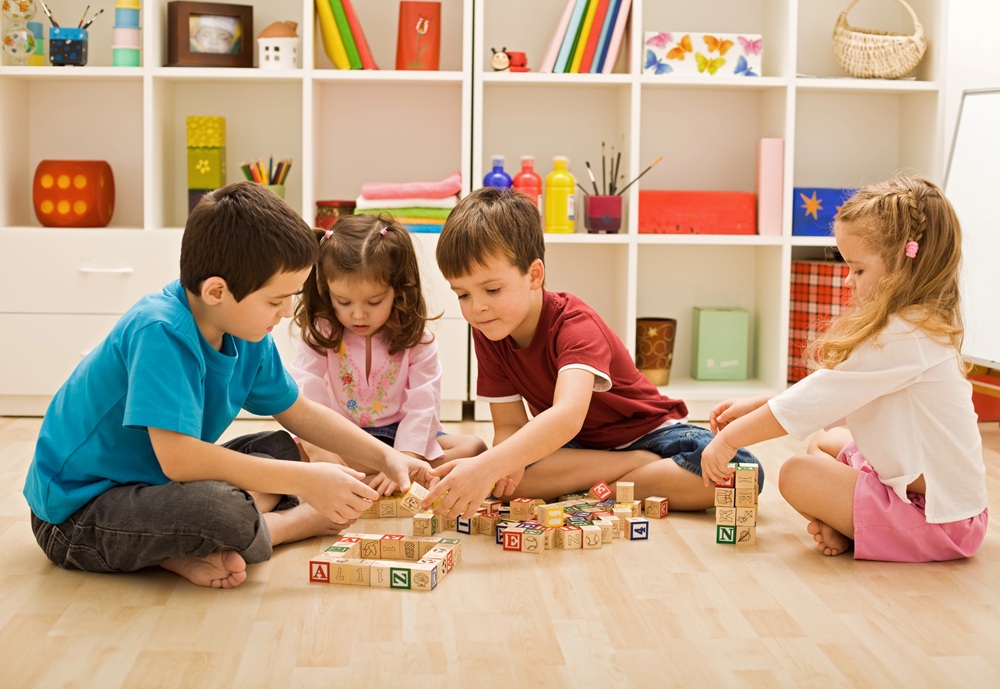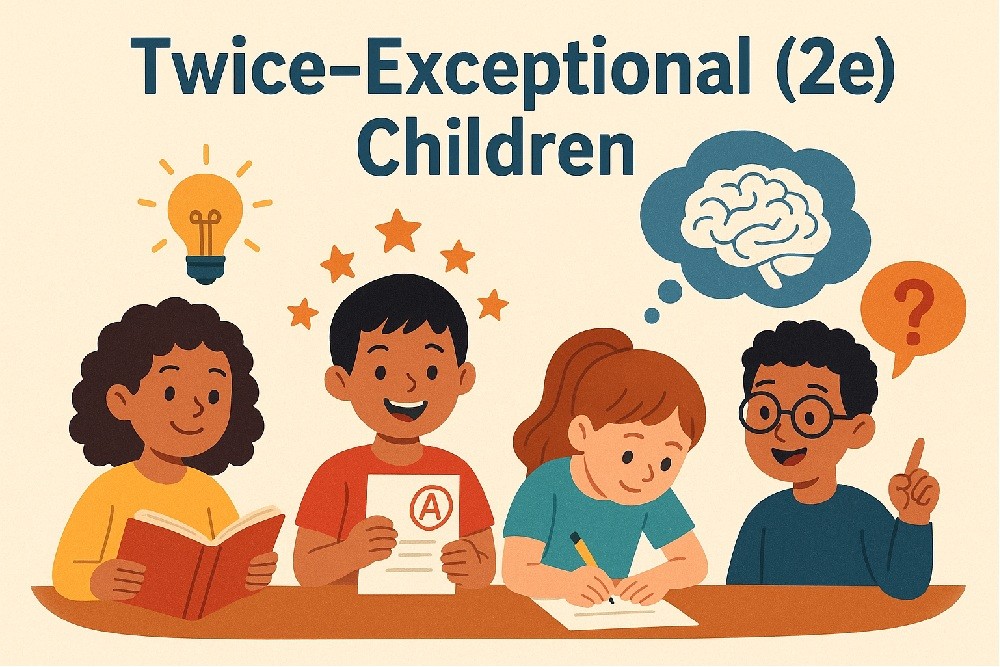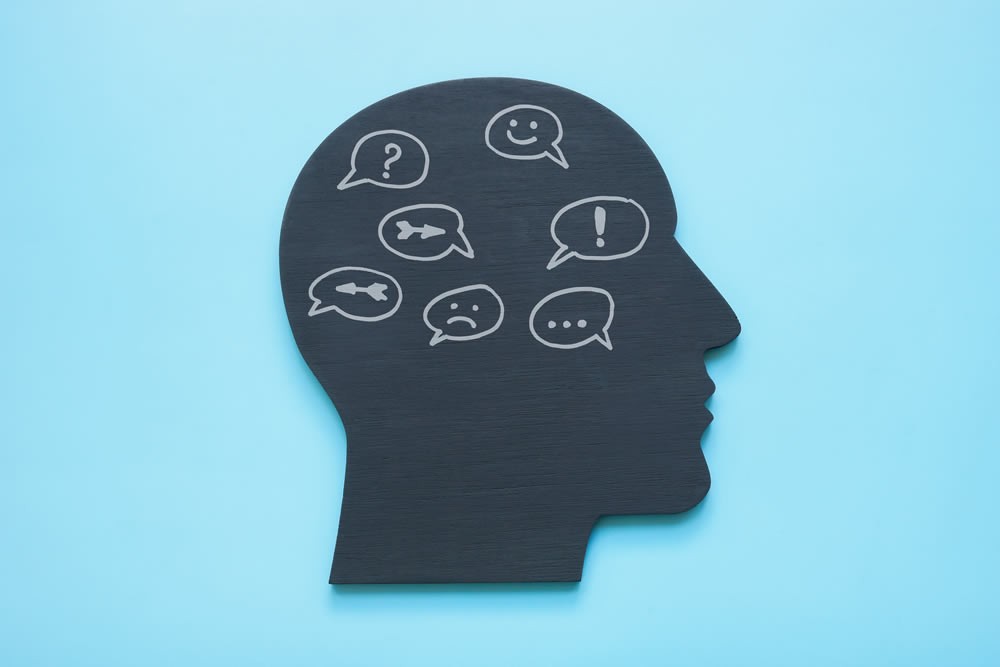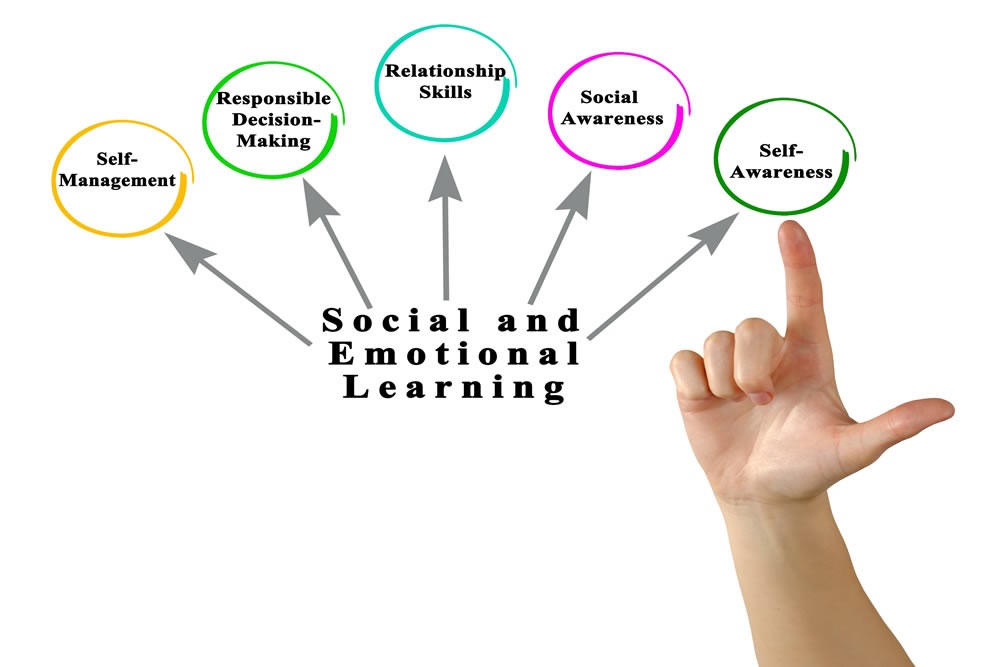When a person struggles in school or experiences behavioral challenges, parents and educators often seek answers.
Resources For Families and Educators

The way we parent plays an important role in our children's emotional development, decision-making abilities, and capacity for healthy relationships.

Children progress through distinct stages of play from infancy through childhood, each building upon the last. Play is a fundamentally voluntary, spontaneous, and enjoyable process through which children learn to interact with objects, materials, peers, parents, and caregivers in both entertaining and social ways.
Children with "twice exceptionality," or 2e, are a commonly overlooked and educationally underserved group.
Introduction: The Power of Proactive Parenting and Early Detection
The ability to communicate effectively serves as a cornerstone for a child's future success, shaping not only academic outcomes but also influencing social interactions, emotional development, and confidence.
Psychological disorders, ranging from anxiety and depression to neurodevelopmental conditions such as autism and attention-deficit/hyperactivity disorder (ADHD), affect individuals at all ages.
Developing empathy is a crucial part of child (and adult!) development. Empathy is the ability to put oneself in the shoes of others, and be able to share those feelings, and is thought to be both a moral virtue, but also an important social skill.
Positive psychology is a field of psychology founded by Dr. Martin Seligman and was developed as a counter to more ‘traditional’ psychological approaches that studied human personality and behavior.
Growth mindset is a term developed by psychologist Carole Dweck that describes the belief that one’s abilities, skills, and intelligence can be developed with effort.
In Cognitive Behavioral Therapy (CBT), negative self-talk is often explained as a result of distorted thinking patterns and underlying core beliefs about ourselves (“I am a bad person”), others (“Others will eventually leave me”), or the world around us (“The world is unsafe or scary”).
Emotional intelligence (EI) is a form of intelligence that describes the ability to understand and manage our emotions, as well as recognize and influence the emotions of others. It is a complex skillset and is composed of multiple factors, including:
By: Craig Selinger, M.S. CCC-SLP, owner of Brooklyn Letters
As a parent, it's natural to be concerned when your child doesn’t meet developmental milestones as quickly as their peers, particularly in language development. Language is foundational to all learning, and a language delay in this area can sometimes be connected to deeper challenges, such as learning disabilities. Understanding this relationship can help you advocate for your child and ensure they receive the support they need.
Even before the internet clued them in to events happening around the world, teens and young adults have had a proud history of engaging passionately with social and political issues.
Neuropsychological testing is a critical tool that can aid in assessing cognitive functions and understanding the impact of neurological, medical, psychological, and social conditions on the brain. Through administering various tests and procedures, these reports provide a detailed profile of an individual’s cognitive abilities. Interpreting a neuropsychological report requires a nuanced understanding of both the data presented and the broader clinical context in which the assessment was conducted. Unless one is experienced in this field, the report can often seem confusing or overwhelming for parents, caregivers, educators, and other professionals. This article is a brief guide for family and non-psychological professionals on understanding the testing process.
As individuals and families seek mental and behavioral health services, they might run into a broad range of providers, all with different degrees, titles, and specialties. Unless you come from this field, these different titles may be confusing, particularly as these providers may all provide similar services.
Often, referrals are made to see children and teens with difficulty expressing their emotions and sentiments (with peers and adults). This impacts their social-emotional well-being and may affect social interaction skills. The challenges can sometimes be psychological and/or attributed to neurodevelopmental differences such as language processing, attention, and emotional regulation.
We often like to think of our sense of self as whole, believing that there is only one ‘me.’ However, certain schools of thought have begun to challenge this notion.
Executive functioning is a term used to describe a set of mental skills that center around starting, sustaining, and completing goals.
Often, referrals are made to see children and teens with difficulty expressing their emotions and sentiments (with peers and adults). This impacts their social-emotional well-being and may affect social interaction skills. The challenges can sometimes be psychological and/or attributed to neurodevelopmental differences such as language processing, attention, and emotional regulation. In therapy with children and teens, there are many avenues to address the building of social-emotional skills, such as:
One of the major tasks of childhood is to consolidate a personality. A personality, as defined by the American Psychological Association (APA) loosely “refers to the enduring characteristics and behavior that comprise a person’s unique adjustment to life, including major traits, interests, drives, values, self-concept, abilities, and emotional patterns.” Judging from this long description, consolidating a personality is no simple task. It is something children (and adults!) develop over time as they grow in psychological and physical maturity.




















